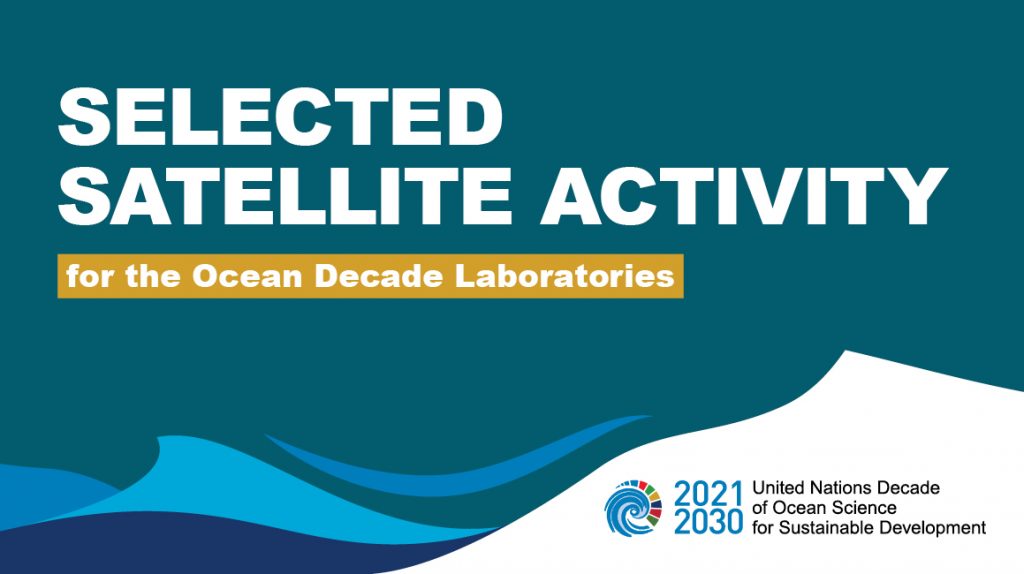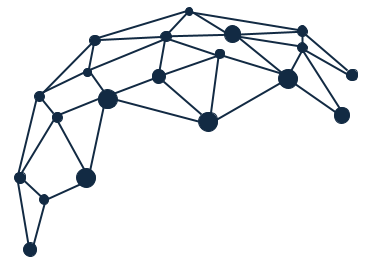A cross-disciplinary workshop on marine data and policy

A Wenner-Gren Symposium & Satellite Activity to the UN Decade of Ocean Science for Sustainable Development Laboratory
“An Accessible Ocean”
The mediated ocean: a cross-disciplinary workshop on marine data and policy
KTH Royal Institute of Technology, Stockholm, Sweden
10-11 May 2022
Day 1, 10th of May, for invited participants, see schedule and abstracts here
Day 2, 11th of May, open for public online, see the schedule and listen to the audio file here.
Over the past half century, the ocean has become subject to an accelerated pace of mediation and datafication, as ocean knowledge is increasingly technologically informed and processed. This ongoing transition has become so comprehensive that the understanding, management and governance of the marine environment is dependent on enormous flows of data from a ‘vast machine’ of measuring tools. These processes combined have formed a ‘mediated ocean’ that now – at the start of both the United Nations Decade of Ocean Science for Sustainable Development and the ‘Decade of Action’ for the Sustainable Development Goals – is both the object and outcome of human decision-making. Mediation and its data formats and technologies are profoundly reshaping perceptions of the marine environment and of the ways it can and should be approached and managed, which should ideally be democratic and guided by the SDGs.
The impacts of processes of mediation on ocean science and governance are manifold, from practices around data collection and processing to the role of environmental data in formulating, monitoring and supporting ocean sustainability outcomes, such as SDG 14 and the objectives of the Ocean Decade. This workshop aims to explore and critically assess these impacts. Questions we plan to address include:
- How do goals like SDG 14 and the Ocean Decade objectives influence the generation and aggregation of ocean data? And, vice versa; how does the nature and availability of ocean data shape the formulation and priorities of ocean governance aims and intentions?
- Public institutions increasingly rely on corporate processing of environmental data. What are the implications of this for, for example, independent scientific inquiry and democratic decision-making for the ocean?
- Autonomous technologies and the data they generate have revolutionised everyday practices for ocean scientists, with potentially profound consequences for the accessibility and affordability of marine scientific research. What are the implications of this extensive datafication? What are some specific challenges and opportunities, for example with regards to making ocean science and policy-making more accessible and inclusive?
- Ongoing and planned exploitation of marine resources, including in areas beyond national jurisdiction, so far seem bent on increasing rather than ameliorating existing inequalities between rich and poor nation states. In what ways are ocean data implicated in the current state-of-affairs, or, vice versa, how can data be used as an equalising force?
- What is the role of the global environmental commons (GSDR 2019), an expanded concept increasingly used in policy, for a mediated and datafied ocean? How are increasing amounts of ocean data with improved resolution tied to global power relations? How does more data and modeling relate to regulation, protection and conservation?
Some of these questions and challenges are addressed with increasing urgency within disciplinary boundaries. However, in their nature, the questions span disciplinary divides, and hence this workshop aims to create an opportunity to explore answers that draw on interaction and insights from across the natural and social sciences and the humanities. The workshop is structured around three thematic perspectives: data, history, and governance, all of which can productively be investigated from an integrative transdisciplinary approach combining insights from environmental history, geography, oceanography, law, policy studies and media theory.
The workshop includes both an in-person and online component. The in-person event is a one-day workshop comprised of three sessions, each with 3 presenters, a commentator and a chair, taking place at KTH Royal Institute of Technology in Stockholm, Sweden. The second day is shorter but more intense, with three panel discussions where participants will gather around pre-circulated cross-disciplinary questions about challenges and opportunities tied to ocean data sustainability. This set of panel discussions will take place online and form a Satellite Activity to the Ocean Decade Laboratory “An Accessible Ocean,” taking place 10-12 May 2022. It will be broadcast live on the Ocean Decade’s website as one of several official Satellite Activities.
The organisers plan for the workshop to eventually result in an edited volume provisionally also titled “The Mediated Ocean.” All workshop participants will be invited to contribute to this outcome, but participation in the workshop does not require a commitment to also be part of the written publication.
The workshop is funded by The Wenner-Gren Foundations. It is organised as part of the research project The Mediated Planet, funded by the Swedish Research Council for Sustainable Development (Formas) and based at the Division of History of Science, Technology and Environment at KTH Royal Institute of Technology in Stockholm, Sweden. Contact persons are Susanna Lidström (susanna.lidstrom@abe.kth.se) and Adam Wickberg (adam.wickberg@abe.kth.se).

Day 1: 10th of May, workshop day for invited participants only.
Schedule and abstracts here
Day 2: 11th of May, open for the public to join online
Listen to the audio recording of the event
The Mediated Ocean: Making Data Sustainable
A Satellite Activity to the UN Decade of Ocean Science for Sustainable Development Laboratory “An Accessible Ocean”
Time: 11 May, 10.00-12.00 CEST
Location: The activity will take place on Zoom (link below). For those who wish to meet in person, we have booked the seminar room at the Division of History of Science, Technology and Environment at KTH (Teknikringen 74D, level 5) so it is also possible to zoom from there.
Zoom link: https://kth-se.zoom.us./j/64032435299
Outline: The Satellite Activity includes three panel discussions. The panels are organised thematically, as opposed to the in-person workshop on 10 May, where the sessions are mostly disciplinary. Each panel includes 5 participants, and a chair. The panels will consist of a tour-de-table, where each panellist introduces themselves and answers/comments on a set of pre-circulated questions or provocations, each using ca 5 min. The tour-de-table is followed by brief discussion/answers to questions from the online audience. Each panel can take 35 min, for a total of 2h. The questions are formulated by the organisers together with the panel participants before the activity.
10.00-10.10
Introduction: The mediated ocean: making data sustainable.
Susanna Lidström, Division of History of Science, Technology and Environment, KTH Royal Institute of Technology
10.10-10.45
Panel 1. Historical trajectories and digital representations
Chair: Adam Wickberg, Division of History of Science, Technology and Environment, KTH Royal Institute of Technology
Provocations: TBD
Panellists:
Sabine Höhler, Division of History of Science, Technology and Environment, KTH Royal Institute of Technology
Sam Robinson, Southampton Marine and Maritime Institute, University of Southampton
Johan Gärdebo, Division of History of Science, Technology and Environment, KTH Royal Institute of Technology
Jessica Lehman, Department of Geography, Durham University
Erik Ljungberg, Division of History of Science, Technology and Environment, KTH Royal Institute of Technology
10.45-11.20
Panel 2. Deep-seabed governance and deep-sea data
Chair: Susanna Lidström
Provocations: TBD
Panellists:
Surabhi Ranganathan, Faculty of Law and the Lauterpacht Centre for International Law, University of Cambridge
Thomas Dahlgren, Department of Marine Sciences, University of Gothenburg and NORCE Norwegian Research Centre
Tanja Stratmann, Department of Ocean Systems, NIOZ – Royal Netherlands Institute for Sea Research
Pradeep A. Singh, Research Center for European Environmental Law, University of Bremen
Tirza Meyer, Division of History of Science, Technology and Environment, KTH and Oslo School of Environmental Humanities, University of Oslo
11.20-11.55
Panel 3. The role of data in (marine) environmental governance: risks and opportunities
Chair: Adam Wickberg
Provocations: TBD
Panellists:
Jesse Peterson, Department of Ecology, SLU Swedish University of Agricultural Sciences
Lars Johan Hansson, Swedish Agency for Marine and Water Management
Anna Åberg, Department of Technology Management and Economics, Chalmers University of Technology
Erik Isberg, Division of History of Science, Technology and Environment, KTH Royal Institute of Technology
11.55-12.00
Concluding remarks: Susanna Lidström
Schedule Day 2 is also available in PDF here.